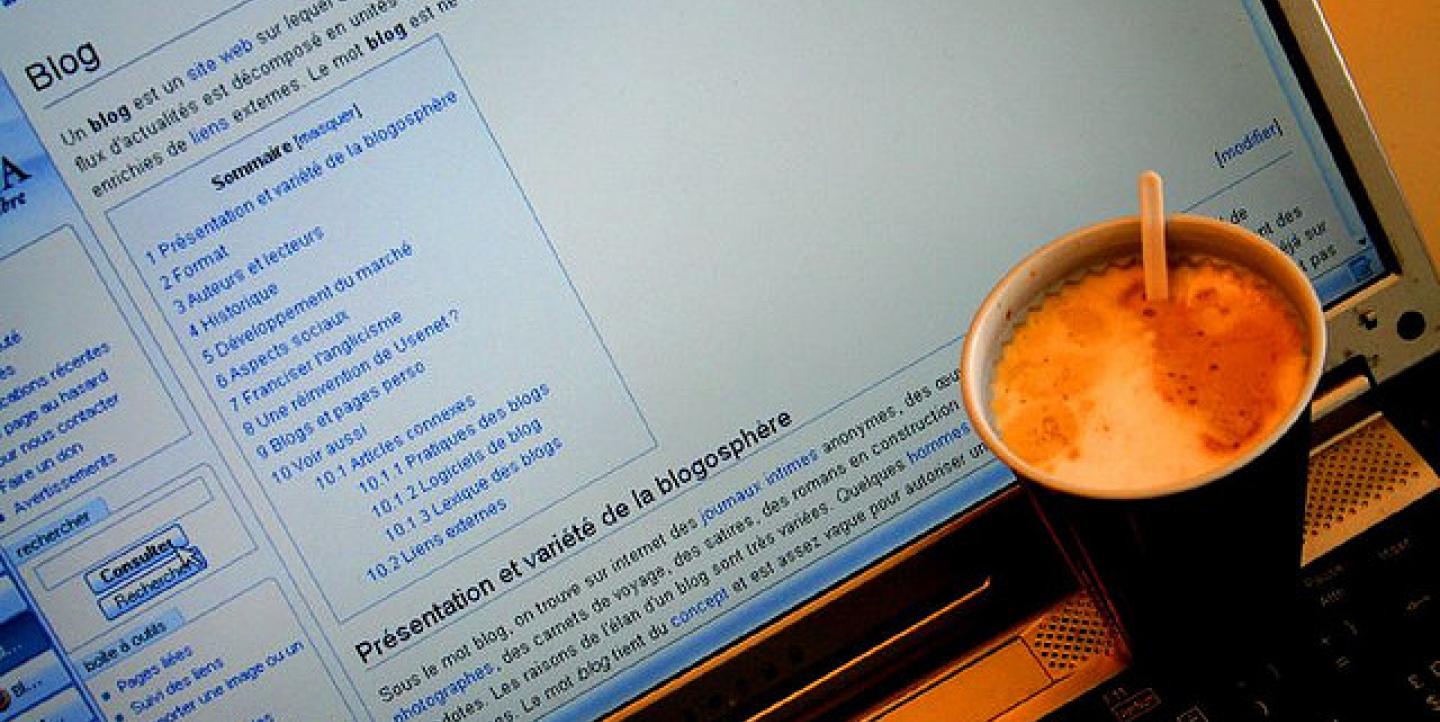If you think blogging is just an extracurricular activity for journalists, think again.
"It's so common in the industry that to not have [a blog] would nearly exclude me from some jobs," says foreign correspondent Julia May, who recently took part in an online expert panel on blogging for job hunters organized by The Guardian career section.
Here are IJNet's main takeaways from the webchat.
Have a clear objective
"Be clear within yourself about a) who you're talking to, b) why you're doing it, and c) how much you're willing to commit to it. Because it is a big commitment," says Julia May, currently the London correspondent for the Sydney Morning Herald and The Age (Melbourne) and co-creator of website The Bulb.
"Knowing your audience (and that you actually have one - that you can cut through the competition and that you aren't merely repeating what's already out there) is very important and has been a learning process all the way through for us," May says. "For example, initially, because we are all women, we thought we were speaking to mostly women. But our content seems to appeal equally to men - so we are adjusting it accordingly."
Make your blog stand out
"Include your blog in any relevant directories - for instance, my blog is for people in the beauty industry so I got it listed within directories for this sector. In the same vein, create a brief overview of your blog and what it is about and send it to relevant news websites/newsletters for potential publication to their readers," says Jenni Retourne, director of communications consultancy Style with Substance who blogs at Your Beauty Industry.
Bring your journalism skills to the table
"In terms of standing out from the fray, our observation has been that most blogs just look pretty amateur, so simply by being professional you put yourself ahead," says May. "I like to think of it as an online way of standing up and delivering a speech to a bunch of people I want to impress. I wouldn't stand up in my pajamas, slur my speech and not have something prepared. Neither would I put something on The Bulb that isn't written (and edited) properly, with interesting visuals," says May.
Persistence, consistence
"If people see you've been blogging and producing quality content for a while on the same kind of subjects, when they can see through comments and your various social media activities that you're well connected within your field, it inspires trust and establishes you as a de facto expert on that subject -- someone they'll feel confident about hiring to write or advise on whatever it is they need," says Clotilde Dusoulier, author of award-winning food blog Chocolate & Zucchini who credits her entire food writing career to the blog.
Remember it's not a solo show. Here are tips from Hristina Hristova, global social media manager for cloud computing company Acronis, on reader engagement.
Ask for opinions
For example, if you have written a post on why you think Nikons are the best cameras out there, finish the post with a question for your readers: "What do YOU think the best camera out there is?" This gives readers the chance to interact with you and share their own thoughts.
Provide the platform
Remind readers of your G+ and Twitter accounts, give them the chance to connect and share with you.
Promote your blog on other blogs
Collaborate with other bloggers and actively promote your channel. Find similar bloggers and start reading and commenting on their blogs - chances are, they will do the same back!
Don't stick to one platform
Create relationships on Facebook, Twitter and G+ - engage with as many people as possible, sooner or later you will see the results.
You can read the complete chat transcript here.

